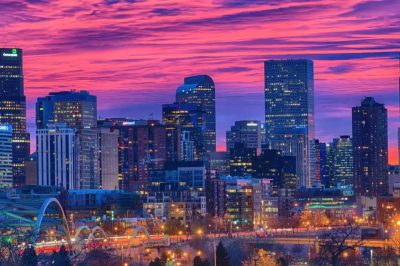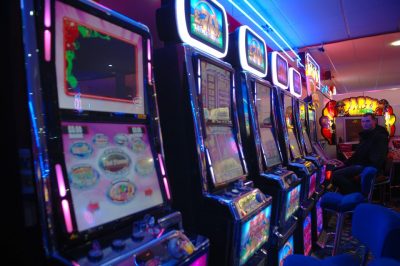 Back in 2015, the so-called “simulated gambling devices” were officially suspended by the Colorado General Assembly, which at the time tried to reduce the constantly increasing number of Internet cafés. However, it not clear whether these measures were as efficient as they were meant to be, as the above-mentioned facilities have returned under a different name.
Back in 2015, the so-called “simulated gambling devices” were officially suspended by the Colorado General Assembly, which at the time tried to reduce the constantly increasing number of Internet cafés. However, it not clear whether these measures were as efficient as they were meant to be, as the above-mentioned facilities have returned under a different name.
For the time being, illegal gambling arcades have literally been located across the entire state, with law enforcement actions being carried out to stop their operation.
The arcades offer simulated slot machines, as well as other simple gambling games. In other words, the terminals offer the players the chance to put a certain amount of money and eventually, receive cash when playing games of skill, games of chance or a combination of the two. These activities, however, are being constituted as gambling under the Colorado Constitution.
Local gaming and gambling legislation has been bypassed by illegal gambling arcades, with their operators also ignoring the will of the state voters. The latter have repeatedly voted against state’s gambling expansion, with at least 70% of the local voters saying “no” to that. For the time being, local voters’ approval is required for every new gambling location or change to the existing ones under Colorado Constitution. In addition, strict regulation has been imposed on the three legal gambling towns in the state.
HB 1234 Aimed at Shutting Illegal Gambling Arcades
 As mentioned above, gambling arcades are not legal in the state of Colorado. The only exception made is for the slot machines situated in the three legal gambling towns, including Black Hawk, Cripple Creek and Central City.
As mentioned above, gambling arcades are not legal in the state of Colorado. The only exception made is for the slot machines situated in the three legal gambling towns, including Black Hawk, Cripple Creek and Central City.
Unfortunately, the illegal expansion of such form of gambling has not been stopped, with approximately 30 slot machine businesses operating across the state, with most of them being situated in Grand Junction and metropolitan Denver, as well as in Pueblo.
Now, the state remains aimed at bringing such illegal businesses’ operation to end, with experts insisting for a crackdown to be imposed on local businesses. Of course, legal gambling facilities in Colorado support local communities and are also focused on minimizing possible gambling-related harm. Reportedly, the amount paid by legal casinos in taxes to the state surpassed $100 million in 2017. The amount brought by such businesses to the state, was largely used for state restoration projects funding, as well as for local education colleges and education centers, and of course, for further regulation of the gambling industry in Colorado. Illegal gambling arcade businesses, on the other hand, do not pay any gaming taxes to the state.
Last week, local legislature saw another attempt for dealing with such illegal “Internet sweepstakes cafés”, with the House Bill 1234 being set for a hearing in the local House Business Affairs and Labor Committee. Back in 2015, a piece of legislation aimed at putting end to illegal gambling activities in Colorado was signed by Governor John Hickenlooper, but some technical problems with the law’s wording occurred, preventing it from being brought to action.
Illegal arcade owners have started a campaign against the HB 1234, aimed at stopping the bill, which would provide local counties and cities with the mechanisms to shut their businesses down.